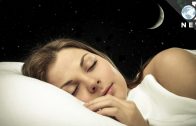Alcohol’s impact on Sleep Quality 🥃 🛌 #alcoholfree #sleepbetter #bettersleep
The common belief that alcohol aids in sleep is a misconception, as recent studies, including one involving nearly 12,000 people, have shown that alcohol is actually linked to poor sleep quality.
How Alcohol Affects Sleep:
Disruption of Sleep Architecture: While alcohol may help some people fall asleep more quickly due to its sedative effects, it significantly disrupts the structure of sleep, particularly the REM (rapid eye movement) and deep sleep stages. These stages are crucial for cognitive functions and overall sleep quality. Alcohol consumption can reduce the duration and quality of REM sleep, which is essential for memory consolidation and mood regulation.
Increased Sleep Fragmentation: Alcohol makes you more likely to wake up during the night. This fragmentation of sleep prevents you from getting the long, uninterrupted sleep periods needed for the body to repair and restore itself.
Alteration of Sleep Physiology: Alcohol can alter normal sleep physiology in several ways. It impacts the brain’s neurotransmitters that regulate sleep and wakefulness, leading to a more restless night. Additionally, alcohol can cause or exacerbate sleep apnea and snoring by relaxing the throat muscles, further reducing sleep quality.
Thermoregulation Disruption: Alcohol causes your body temperature to rise. An increase in body temperature can disrupt your circadian rhythm, the body’s natural clock that signals when it’s time to sleep or wake up. This thermoregulation disruption makes sleep less refreshing.
The Long-Term Impact:
Chronic use of alcohol as a sleep aid can lead to dependency and a vicious cycle where more alcohol is required to achieve the same sedative effect. Over time, this can exacerbate sleep issues and contribute to a range of other health problems, including cardiovascular diseases and mental health disorders.
Alternatives to Alcohol for Better Sleep:
Establish a Relaxing Bedtime Routine: Activities like reading, taking a warm bath, or practicing relaxation techniques such as meditation or deep breathing can help prepare your body and mind for sleep.
Create a Comfortable Sleep Environment: Ensure your bedroom is conducive to sleep—quiet, dark, and cool.
Avoid Stimulants: Reduce or eliminate caffeine and nicotine, particularly in the hours before bedtime.
Regular Exercise: Regular physical activity can help you fall asleep faster and enjoy deeper sleep, though it’s best not to exercise right before bedtime.
In summary, while alcohol might seem like a quick fix to induce sleep, it does not promote restorative sleep and can significantly impair sleep quality and overall health. Adopting healthier sleep practices is a more effective and sustainable approach to improving sleep.


























